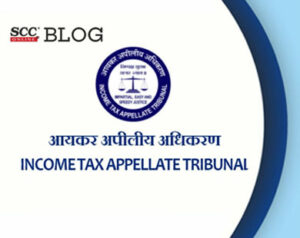Income Tax Appellate Tribunal: In appeals against the order of Commissioner of Income Tax(‘CIT’), involving proceedings under Section 12-AA(1)(b)(ii), 80-G(5)(vi) and 10(23C)(vi) of Income Tax Act, 1961 (‘the Act’), two-member bench of Rama Kanta Panda and Laliet Kumar upheld the order of CIT and held that as the hospital (assessee) is charging on the basis of commercial rates from the patients, therefore it is not entitled to registration as a charitable organisation under Section 12-A of the Act. In the case at hand, the assessee was a private limited company and was converted into a company under Section 8 of the Act and changed its name to “Fernandez Hospital”. However, while filing Form 10A/10G, the assessee had given the name as “Fernandez Hospital Foundation”. Due to this mismatch in the name of the assessee , a notice was issued to the assessee to appear and produce its original Memorandum of Association for verification. On perusal of the evidence filed by the assessee, the application of assessee was rejected by the CIT treating the same as non-est due to ambiguity regarding the name of assessee company and list of directors. Further, it was pointed out by CIT that the assessee is involved in activities which are in the nature of trade and provides services at market rates. Besides that, assessee had also violated the provision of section 13 of the Act, as huge amounts were paid to the directors or interested persons. Thus, CIT had denied the exemption to the assessee on the ground that the assessee is providing medical facilities on a commercial basis. Further, the assessee had paid huge amount to its promoters, directors etc. in the shape of remunerations.
The assessee has raised the ground that the order of the CIT is contrary to the provision of law. Further, CIT has erred in concluding that activities conducted by the trust, and its objectives, are not charitable in nature and has erred in not granting registration under Section 10(23C)(vi), 12-A and 80-G(5)(vi) of the Income Tax Act, 1961.
The assessee submitted that its activities are akin to the activities of the Bill & Melinda Gates Foundation (BMGF), Tata Foundations etc., and though these are business houses, yet they are involved in philanthropist work. Per contra, the revenue submitted that the profile of the assessee is no way similar to BMGF or Tata Foundation, as the said organizations are contributors and applying their business income for the welfare of needy and poor in health, education, nutrition, etc., whereas the assessee had converted its profit-making company into a Section 8 company, with a view to seek exemption of income.
The Tribunal said that the as per form 56 as applicable for filing an application for exemption under Rule 2C of Clause (23C) of Section 10 of the Act and the corresponding form for filing an application under Section 12AA, the assessee was required to file various documents including accounts and balance sheet. Hence, CIT was correct in relying upon the financials for the last three years. Further, the above-said documents must be filed by the assessee at the time of filing the application.
The Tribunal viewed that the assessee’s submissions, that the matter may be remitted back to the CIT for re-examining the case is without any basis. Further, placing reliance on New Noble Educational Society v. CIT, 2022 SCC OnLine SC 1458, it said that the CIT was well within his right to examine the audited records and other financial statements with a view to deciphering the nature of the activities it said that the CIT can examine the records of the assessee, and once the record was made available for the last three years by the assessee before the CIT, then the assessee cannot approbate and reprobate and assert that only the information for the said period should be examined, and therefore, it disapproved the same.
The Tribunal opined that the CIT was not at fault, merely because he had examined the data supplied by the assessee at the time of making the application. Further, the assessee had failed to bring on record any comparative chart of diagnostic charges, procedure charges and test charges prior to the conversion of the assessee into section 8 company and failed to show that there was a major reduction in fee charged by the assessee for the above said purposes. Thus, after placing reliance on Ashwini Sahakari Rugnalaya & Res. Centre v. CIT, 2021 SCC OnLine SC 1038 it held that the assessee is not entitled for registration or approval under section 10(23C) or 12-A of the Act.
The Tribunal noted that, neither the activities, nor the management, the place of services, the charges for treatment had changed in any manner by conversion, and only the name of the assessee had changed, although the assessee is claiming registration under the Act. Further, the assessee could have done charity work by either bringing down its profit by providing services at a reasonable rate or by utilizing the surplus for providing free medical facilities to the poor and needy people. However, the assessee had only provided treatment to 65 indoor patients at concessional rates which was less than 1% of the revenue of the assessee. Thus, the activities of the assessee cannot be said to be charitable activities.
Therefore, the Tribunal upheld the decision of CIT.
[Fernandez Foundation v. Commissioner of Income Tax, 2022 SCC OnLine ITAT 670, decided on 08-12-2022]
Advocates who appeared in this case :
Assessee by: Advocate S. Ravi;
Revenue by: CIT-DR Rajendra Kumar
*Apoorva Goel, Editorial Assistant has reported this brief.

